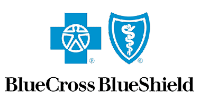How Assistance Works
Streamlining our patient’s specialty pharmacy experience with unmatched full-service convenience
-

1. Check Your Coverage/Benefits Verification
Our team of expert billers finds the best avenues of coverage that minimize out-of-pocket costs.
-

2. Transfer Prescription to AmeriPharma®
We process your prescription by working with your previous pharmacy or prescriber, making the transition quick and easy.
-

3. Prior Authorization
Our team of specialists obtains approval from your insurance companies within 24 to 72 hours.
-

4. Copay Assistance & Financial Aid
We secure financial aid and decrease copays, out-of-pocket expenses, and high deductibles. To date, AmeriPharma® Specialty Care has secured $55 million in financial assistance for our patients.
-

5. Nursing Care Coordination
AmeriPharma® puts your schedule and home environment first when scheduling and coordinating one of our specialized nurses for your in-home infusions.
-

6. Delivery Coordination
Medications are always delivered in strict compliance with the specific requirements for shipping. Next-day and overnight cold-chain deliveries are coordinated around your schedule.

What Is Erlotinib?
Erlotinib, also known as Tarceva, is a targeted cancer drug used to treat metastatic non-small cell lung cancer (NSCLC) in patients with a specific gene mutation (EGFR exon 19 deletion or exon 21 [L858R] substitution mutations) as first-line therapy, maintenance treatment, or for progressive disease. It is also used to treat patients with locally advanced, unresectable, or metastatic pancreatic cancer. Lastly, it can be used for advanced papillary kidney cancer (off-label use).
Mechanism of Action
Erlotinib is a tyrosine kinase inhibitor (TKI), a type of cancer growth blocker. Its mechanism of action is to block proteins on cancer cells that encourage them to grow. These proteins are called epidermal growth factor receptors (EGFR). It has been shown to be effective in patients whose cancer cells express the EGFR mutations, even though it can also be utilized in patients whose tumor cells do not express these mutations.

How Erlotinib Is Taken
This medication is taken orally once daily and should be taken on an empty stomach, at least 1 hour before or 2 hours after food. It is also preferable to take the medication at the same time every day. If a patient misses a dose, they should take it as soon as they remember. If it is close to the timing of the next dose, the missed dose should be skipped and the patient should continue with the next dose at the scheduled time. Do not take two doses at once or extra doses.
Dosage
Erlotinib comes in three strengths, as 25 mg, 100 mg, and 150 mg tablets.
The recommended dose for NSCLC is 150 mg/day. The recommended dose for pancreatic cancer is 100 mg/day.
The dose will be reduced in 50 mg increments when necessary.
Copay and Financial Assistance
AmeriPharma™ Specialty Pharmacy alleviates financial burdens for patients and their families
-

Advanced software locates funding sources to match you with top-dollar foundation programs
-

One of our copay assistance specialists will assist with the application process
-

Automatic updates will be sent to you and your physician on the status of the funding

Drug Interactions
The blood level of this medication is affected by certain foods and medications. Therefore, the following should be avoided or a dose reduction should be considered if severe adverse reactions occur:
- Atazanavir
- Clarithromycin
- Indinavir
- Itraconazole
- Ketoconazole
- Nefazodone
- Nelfinavir
- Ritonavir
- Saquinavir
- Telithromycin
- Troleandomycin (TAO)
- Voriconazole
- Grapefruit or grapefruit juice.
Cigarette smoking can reduce erlotinib levels. Patients should therefore stop smoking while taking this medication. However, if they continue to smoke, a cautious increase in dose may be considered.
Drugs that alter the pH of the upper GI tract may alter the solubility of erlotinib and reduce its effects. Coadministration of erlotinib with omeprazole (a proton pump inhibitor) can decrease erlotinib’s concentration so this combination should be avoided if possible. If patients need to be treated with a H2-receptor antagonist (i.e., ranitidine), erlotinib must be taken once a day, 10 hours after the H2-receptor antagonist dosing, and at least 2 hours before the next dose of the H2-receptor antagonist. Although the effect of antacids on erlotinib has not been evaluated, the antacid and erlotinib use should be separated by several hours, if an antacid is necessary.
Erlotinib Side Effects
The most common side effects when this medication is used in 2nd line NSCLC are:
- Rash
- Diarrhea
- Anorexia
- Fatigue
- Dyspnea
- Cough
- Nausea
- Infection
- Vomiting
The most common side effects when this medication is used in pancreatic cancer are:
- Fatigue
- Rash
- Nausea
- Anorexia
- Diarrhea
- Abdominal pain
- Vomiting
- Weight loss
- Infection
- Edema
- Fever
- Constipation
- Bone pain
- Shortness of breath
- Mouth sores
- Muscle pain
The most common side effects in maintenance treatment are:
- Rash-like events
- Diarrhea
Insurances Accepted
We accept Medicare, multi-state Medicaid, Medi-Cal, Blue Shield, and most private insurances. Call us to find out more about your coverage.
Get Started in Minutes
Fill out your information and one of our specialists will call you ASAP.
How Much Can You Save?
Complete this form to save up to 100%!

By submitting, you agree to AmeriPharma’s Terms of Use, Privacy Policy, and Notice of Privacy Practices


